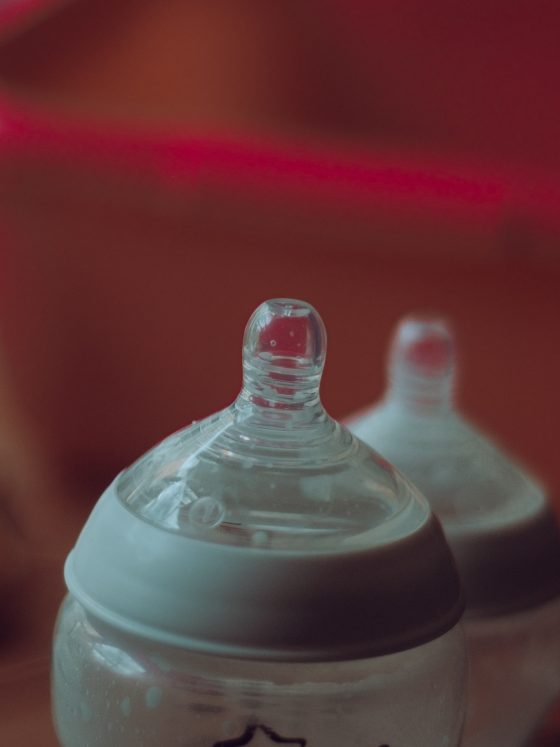D-MER – a sadness during breastfeeding that you need to know about

D-MER – or Dysphoric Milk Ejection Reflex, is a relatively common disorder where a lactating person can feel sadness, depressed or anxious while experiencing a milk letdown during breastfeeding/chest-feeding and/or pumping. D-MER can cause a negative association with lactation and may even cause you to question if something is wrong. But D-MER is NOT YOUR FAULT! If this sounds familiar, keep reading to learn more.

What is D-MER?
D-MER – or Dysphoric Milk Ejection Reflex, is a relatively common disorder where a lactating person can feel sadness, depressed or anxious while experiencing a milk letdown during breastfeeding/chest-feeding and/or pumping. It’s usually transient, lasting 30 seconds to 2 minutes.
According to d-mer.org, “D-MER is not a psychological response to breastfeeding. It is a physiological response to milk release.” D-MER is not postpartum depression, postpartum anxiety, or other PMADs. Please visit our blog post on PPD/A and other PMAD resources here. D-MER is not a breastfeeding/chest-feeding aversion. D-MER is considered a spectrum – ranging from mild to severe according to the person experiencing it – even ranging on emotions unique to the experiencer.

Can I experience D-MER with pumping?
Yes! This is very common. Some lactating people only experience D-MER with pumping, while others experience with both direct feeding (latching) and pumping.
What causes D-MER?
It is thought that “inappropraite dopamine activity” during the milk ejection reflex. This sudden drop of dopamine, or the feel good hormone, causes a rush of feelings of dysphoria – sadness, depression and anxiety. D-MER is not controlled by the lactating person – it is a hormonal reaction and it is not psychological.
Can I prevent D-MER and is it treatable?
D-MER is not caused by something the individual did or did not do, therefore, sometimes it can be unpreventable. However, knowing that D-MER is not your fault and you are not doing anything to cause it can bring some relief to the situation. Medications can be prescribed in severe situations to help with the amount of dopamine in the body to prevent D-MER.
Remember, is it OKAY TO WEAN if you have D-MER. This is an option! Check out our weaning to formula e-guide as well as our weaning to whole milk/alternative e-guide for support. Reach out to Kate, Lauren or Natalie for a personalized consultation to help you wean – emotionally and physically. Click here for our 5 signs it’s time to wean blog post.

Will I have D-MER the entire time I am lactating?
No, not necessarily. D-MER.org states that most mild cases of D-MER resolve around the 3 month mark. However, there are more cases of moderate to severe D-MER that can last 9-12+ months postpartum.
If I have D-MER, will I have it with subsequent pregnancies?
Most likely, if you have D-MER the first time, you will experience it with subsequent pregnancies since it is a physiological response to how your body responds to hormones and dopamine.
Does D-MER affect my baby?
D-MER is not dangerous to your baby. It is ok to continue nursing and/or pumping, if you wish. It is also okay to wean! Click here for our 5 signs it’s time to wean blog post.
I feel D-MER even when I’m not actively feeding or pumping. Is this normal?
A study found that “Direct nipple stimulation was not needed for the onset of negative emotions. Anything that caused a milk release, expected or unexpected – breastfeeding, mechanical or manual milk expression, the release of milk caused by thinking about her baby or by breast fullness – generated the same negative feelings.” In other words, just a feeling of a let down, whether there was stimulation or not, was enough to stimulate feelings of D-MER.
Where can I find more support for D-MER?
Visit here for more information. Please reach out to Deema, Kate, Lauren or Natalie for support! We can help you come up with a plan that fits your goals and family.
BOOK CONSULT NOW
Other helpful blog posts:
- 5 common nipple issues
- Correctly bottle feeding your baby
- What is breast rest
- 5 signs that it’s time to stop weaning from breastfeeding or pumping
- Everything you need to know about thrush
Sources:
**This is an educational blog post and should not replace the advice of your healthcare provider. If you feel you are experiencing signs or symptoms of PPD/A or other PMADs, you should reach out to your health care provider immediately. We are here to support you as well.











